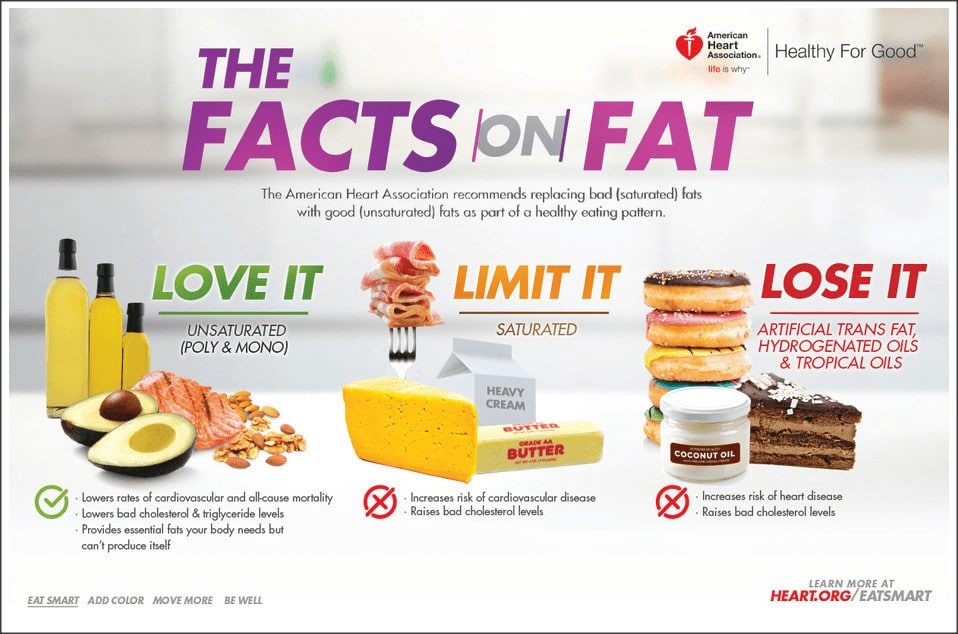
Weight Loss Secrets to use helpful information by a Med Spa In San Antonio
Whether trying to lose weight or just watching your weight, you may have been relying on not-so-accurate advice. Based on what you’ve read, do you think it’s better to eat foods made with “fat free” substitutes instead of fat? What about sugar substitutes? True, nutritional substitutes are very much en vogue of late. While we agree with some statements promoted by popular media, we disagree with others. We’ll explain.
Fast Fat Facts
Wouldn’t it be nice if all of your weight loss problems could be solved by eliminating fats from your diet? It’s not that simple. Contrary to popular belief, fat is not evil. In fact, we need fat to survive. The brain’s construction consists primarily of essential fatty acids. We need fat to insulate our vital organs and bones. We need fat for healthy skin and joints. Fat insulates nerve fibers to help transmit nerve impulses.
Besides more serious effects, what happens if we don’t have enough fat in our diet?
* Dry, scaly skin
* Hair Loss
* Poor wound healing
* Bruising
* Cold intolerance
Our body cannot manufacture essential fatty acids; we must eat fats. We do not recommend fat substitutes for weight loss.
According to the Department of Agriculture’s Dietary Guidelines, you should get 20%-35% of your calories from fats. While choosing the best kind of fat makes a difference for your health, keep in mind that all fats contain the same number of calories. The good fats, the unsaturated fats include polyunsaturated fatty acids and monounsaturated fatty acids. When using these to replace bad fats, both help lower cholesterol levels and reduce risk of heart disease. The bad fats, saturated fats and trans fatty acids can raise your cholesterol levels and increase risk for heart disease. The American Heart Association recommends keeping saturated fats to just 7% of total daily calories and recommends severely restricting trans fats to less than 2 grams per day.
The Primary Dietary Source of Body Fat
Eliminating or even reducing your fat intake does not act as a magic bullet to weight loss. In fact, according to diabetes expert, Dr. Richard K. Bernstein, the primary source of body fat for most Americans does not come from dietary fat but from carbohydrates. Dr. Bernstein explains “(c)arbohydrates are converted to blood sugar and then, with the aid of insulin, to fat by fat cells.” He explains that fats can be used by the body in multiple ways depending on what your body needs: (1) as energy, (2) stored or (3) converted by your body into other compounds. In other words, fats remain ‘in flux’ in you body. Rather than focusing on fats, managing your intake of carbohydrates should lead to faster weight loss.
Bitter Facts about Sugar Substitutes
Most American adults consume about 22 teaspoons of sugars daily. That’s 352 empty calories, not to mention the health risks of consuming sugar (too much to cover in this article).
What about using sugar substitutes to lose weight? You could avoid the sugar calories. Shouldn’t that help to lose weight? That was the idea when they were first introduced in the 1950’s. Recent studies show otherwise.
Studies Show Artificial Sweeteners Lead to Weight Gain
A recent Canadian study followed more than 400,000 people for an average of 10 years and found those people who consumed low-calorie artificial sweeteners experienced an increase in BMI and waist circumference from consuming sugar substitutes. The study showed these individuals were actually more likely to face increased risk of type 2 diabetes, obesity, heart disease, high blood pressure and other cardiovascular health issues.
Medical experts have recently identified ‘sweetness receptors’ in fat tissue. Dr. David Ludwig, professor of pediatrics at Harvard-affiliated Children’s Hospital in Boston, wrote, “(t)hat raises the possibility that artificial sweeteners could cause weight gain by directly stimulating the development of new fat cells.”
Common Artificial Sweeteners
* Aspartame
* Cyclamate
* Equal
* NutraSweet
* Phenlalanine
* Saccharin
* Splenda
* Sorbitol
* Sucralose
* Sweet ‘N Low
* Xylitol
Other experts disagree. Robert Rankin, president of the Atlanta-based Calorie Control Counsel said, “(l)ow-calorie sweeteners are a tool to help provide sweet taste without the calories to address one aspect of calorie intake.” Though we understand Mr. Rankin’s concern with the importance of reducing calories, he seemingly fails to consider the health risks of long term use of artificial sweeteners noted by recent studies.
We recommend limiting artificial sweeteners to short term use – while weaning yourself off sugary beverages and food items.
You’ve tried your best to be smart in managing your weight but you don’t know what to believe. Seek advice from experts.
For more information about weight loss, contact the body shaping experts at Sculpt Away in San Antonio at 210-227-3051 or visit www.SculptAway.com.
We’re here to help. Schedule a consultation today to discuss treatment options
and look your very best.